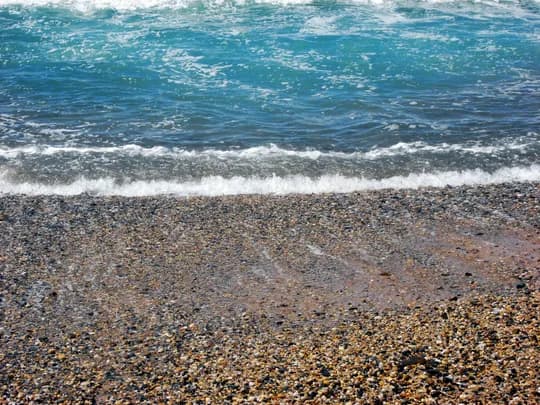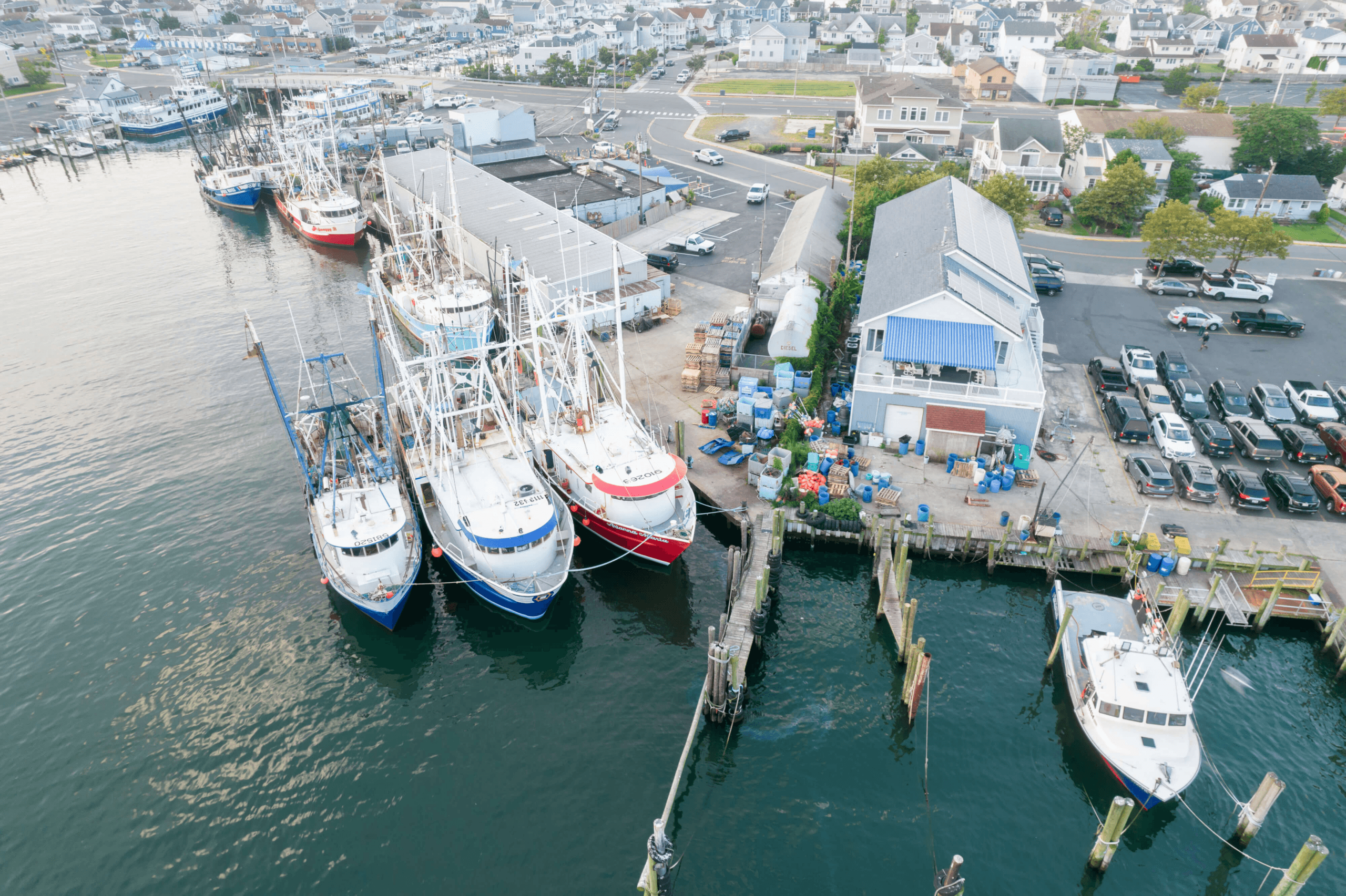Apply Now for MACAN Fellowship

Background and Fellowship Overview
MACAN (the Mid-Atlantic Coastal Acidification Network) is a virtual network of researchers, educators, decision-makers, industry representatives, policy experts, and federal, state, local, and tribal leaders whose mission is to advance knowledge and understanding of the effects of coastal and ocean acidification (COA) and promote regional collaboration to advance this knowledge. This fellowship is designed to first advance COA education in formal, standards-based, classroom settings in Virginia Public Schools and eventually other Mid-Atlantic states. The long-term goal is that the COA curriculum expanded through this fellowship opportunity will also provide a model for public school science curriculum across the United States.
MACAN’s fellowship aims to provide an immersive, real world learning opportunity while also helping to build diversity within the field of COA. This fellowship is also intended to support a project(s) that builds on the activities outlined in the MACAN 2022-2024 Workplan. The student will interact with one or more mentors to learn about the fundamentals of COA science, policy, industry, education, and outreach.
Students will be required to work with a mentor(s), that will be determined through consultation with MACAN, and produce a final product. This product could include, but is not limited to outreach materials, a final paper, a poster presented at a meeting, or a digital data product/tool. There will be discussion with the chosen fellow within the first month of the fellowship to determine what the final product(s) will be and will be written into the contract. Some travel in the Mid-Atlantic region will be required and the costs will be covered by the award. Travel opportunities will be determined during project development with MACAN, and could include visits to research laboratories, professional conferences, NOAA program offices, or other mentoring and hands-on opportunities.
Funds will be distributed either through a stipend to the Fellow through their college or university or a 1099 contract directly with the Fellow. Students currently enrolled in a bachelor's or graduate program are eligible. If applicable, continuing education credits may be granted depending on agreements with individual institutions and/or accredited organizations and will be determined during the selection process.
This fellowship program is open to US Citizens. Students enrolled in Virginia colleges or graduate schools or teachers employed in the State of Virginia will be given priority due to their familiarity with the school system and educational needs and methods and proximity to the primary mentors (located in Gloucester Point, VA); the next priority will be residents of the Mid-Atlantic region.
This fellowship program will be open to those that identify as part of an underrepresented group as defined by NOAA, which could include but is not limited to:
- Black, Latino, and Indigenous and Native American persons
- Asian Americans and Pacific Islanders
- Other persons of color
- Members of religious minorities
- Lesbian, gay, bisexual, transgender, and queer (LGBTQ+) persons
- Persons with disabilities
- Persons who live in rural areas
- Persons otherwise adversely affected by persistent poverty or inequality
Funding Options
Through Bipartisan Infrastructure Law funding from the Mid-Atlantic Regional Council on the Ocean (MARCO), MACAN is offering an up to 18-month fellowship opportunity. The fellowship will be a maximum of $65,000 which will be used to cover:
- A stipend including direct (salary) and indirect (fringe and overhead) costs to the college or university. The final offer amount and how it is distributed over direct and indirect funds will be determined by the review committee and the college/university.
- A 1099 contract may be elected to pay funds directly to the fellow.
- Indirect university costs (from the above bullet point), which varies by institution and will be determined by MARCO during the application process and could impact the direct salary amount to the fellow; and
- Up to $5,000 for other direct expenses for travel, which will be determined during the performance period.
The Fellowship performance period is from September 2, 2024, through February 27, 2026. With the expectation that curriculum would be available to be included in teaching standards beginning with the 2025-2026 school year.
Laboratory and fieldwork will not be supported by this project. Additionally, any data that is used must either be obtained from a designated mentor(s) or a publicly accessible data repository.
MARCO will also reimburse the student for travel expenses, which will be determined by MACAN staff with input from the student and mentor(s) during the fellowship performance period.
This fellowship will be awarded by the Coastal States Stewardship Foundation on behalf of MARCO and MACAN, and may be administered through the institution where the student is enrolled.
Timeline
It is expected that the overall final deliverable products and Scope of Work will be developed with MACAN within the first month of the performance period and final product delivered by the end of the performance period. The maximum allowed time for the completion of the curriculum will be 18 months, including presentation at meetings.
Applications will be accepted until June 30th, 2024. Interviews will be scheduled for the second half of July. The expected start date is September 2, 2024.
Scope of Work
This fellowship will expand upon the lessons created for our current Coastal Acidification Curriculum, including real-world acidification monitoring data and interviews from teachers piloting this curriculum to provide a more broadly applicable resource for biology, chemistry, and environmental science teachers in the Mid-Atlantic region. The fellow will work with mentors from the Chesapeake Bay National Estuarine Research Reserve (CBNERR). The goal of this project is also to advance the development of the Mid-Atlantic based curriculum to be a resource for educators nationwide:
- Bring current Coastal Acidification in the Classroom curriculum up to Next Generation Science Standards (NGSS) curriculum up to
- Develop two biological impacts lessons and one data mystery lesson for Mid-Atlantic focused biology, environmental science, or chemistry curriculum, that would be appropriate for grades 9-12, and may include multiple grade-level curriculum.
- Attend VA SEA Lesson Plan Project for Science Graduate Students (remote option) in the Fall of 2025 to learn best practices in developing lessons and publish the lesson plan(s) on VA SEA catalog at VIMS
- Present lessons at the Summer 2025 Teachers On The Estuary (TOTES) workshop, run by the National Estuarine Research Reserves, in VA and/or other Mid-Atlantic TOTES
- Remotely interview teachers about the curriculum products and classroom use. Results of the interviews will be incorporated into the lesson plans and possibly shared in a publication at the discretion of the project mentor(s)
- Present lessons learned from curriculum development, teacher workshops, and interviews at a national science educators meeting, for example, National Marine Educators Association (NMEA) or National Science Teacher Association (NSTA), and/or Coastal and Estuarine Research Federation (CERF) meetings in 2025
- Regular (once to twice per month) communication between the selected Fellow(s) and (a) mentor(s) - identified in partnership with MACAN - that will advise on their final project process, delivery, and publication if applicable
- Attendance as needed or requested during bi-weekly MACAN staff meetings
- Attendance during quarterly MACAN Steering Committee meetings
- Presentation ofthe project during a MACAN-sponsored webinar, Spring 2025
MACAN and CBNERR will provide mentorship throughout the course of the project through its network of collaborators.
Eligibility Requirements
- Undergraduate or graduate students currently enrolled in a U.S. college or university (graduation could occur before the termination of the project/contract);
- Non-students are also eligible to apply and will be asked to provide final transcripts showing completion of their degree in a related field of study;
- Must be able to travel, especially during the summer 2025;
- Applicant must be United States citizens with preference given to residents of the Mid-Atlantic;
- Applicant must be able to devote, on average, at least eight hours per week to fellowship activities as listed in the scope of work;
- Preference will be given to students or professionals in Virginia with backgrounds in science teaching and education.
- Bring current Coastal Acidification in the Classroom curriculum up to Next Generation Science Standards (NGSS) curriculum up to
- Develop two biological impacts lessons and one data mystery lesson for Mid-Atlantic focused biology, environmental science, or chemistry curriculum, that would be appropriate for grades 9-12, and may include multiple grade-level curriculum.
- Attend VA SEA Lesson Plan Project for Science Graduate Students (remote option) in the Fall of 2025 to learn best practices in developing lessons and publish the lesson plan(s) on VA SEA catalog at VIMS
- Present lessons at the Summer 2025 Teachers On The Estuary (TOTES) workshop, run by the National Estuarine Research Reserves, in VA and/or other Mid-Atlantic TOTES
- Remotely interview teachers about the curriculum products and classroom use. Results of the interviews will be incorporated into the lesson plans and possibly shared in a publication at the discretion of the project mentor(s)
- Present lessons learned from curriculum development, teacher workshops, and interviews at a national science educators meeting, for example, National Marine Educators Association (NMEA) or National Science Teacher Association (NSTA), and/or Coastal and Estuarine Research Federation (CERF) meetings in 2025
- Regular (once to twice per month) communication between the selected Fellow(s) and (a) mentor(s) - identified in partnership with MACAN - that will advise on their final project process, delivery, and publication if applicable
- Attendance as needed or requested during bi-weekly MACAN staff meetings
- Attendance during quarterly MACAN Steering Committee meetings
- Presentation ofthe project during a MACAN-sponsored webinar, Spring 2025
MACAN and CBNERR will provide mentorship throughout the course of the project through its network of collaborators.
Application Requirements
- Written statement (maximum two-pages) addressing the questions:
- What interests you most about coastal ocean science and/or COA?
- Why are you interested in science curriculum development? Describe any previous experience with curriculum development for high school students, or with teaching in an informal science education setting or a formal classroom.
- Maximum two-page resume with most recent experience (no COA experience required)
- Most recent unofficial transcript from the institution if the student is enrolled at the time of application, OR final transcript from the most recent degree-granting institution with official transcripts possibly being requested at the time the contact is developed
- At least two years of experience in the field of science teaching (formal or informal)
- At least three faculty and/or professional references (letters of recommendation accepted, at minimum must provide email address, name, and phone number of reference), MACAN will be contacting references via emailHow will this fellowship further your career goals?
Please note, an interview may be required upon initial review of application materials. Additionally, the student may be asked to provide an official transcript at the time of acceptance.
Applications are due by June 30th at 11:59 pm, 2024. Applicants will be notified by August 1st, 2024, with a start date of September 2nd, 2024.
Please send one PDF document with the subject MACAN Fellowship Application, to: jreimer@midatlanticocean.org.
If you have any questions, please contact: Janet Reimer, Mid-Atlantic Regional Council on the Ocean Science Program Manager, jreimer@midatlanticocean.org
Mid-Atlantic Regional Council on the Ocean
Award ID Number: NA23NOS4730041
Task 2, Subtask 2.5
Get Involved
If you are interested in learning more about MACAN and the work we do, please sign up for our monthly newsletter. You can also read our 2024 to 2028 Work Plan.

The Mid-Atlantic Coastal Acidification Network. All Rights Reserved.